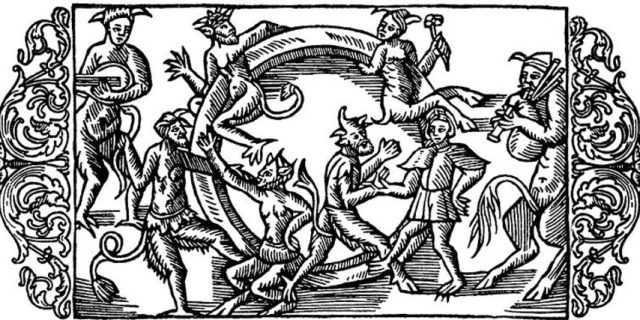
By
David R. Winter and Richard Raiswell
March 2024
Print Version
What you need to know
The Medieval Devil: A Reader is among the most recent titles in UTP’s Readings in Medieval Civilizations and Cultures series. This popular series has been developed to fill a gap in the pedagogy and scholarship of the Middle Ages. It provides students and researchers with modern English translations of representative texts on a variety of topics and themes vital to the study of medieval European history and culture. The Reader brings together into a single volume a collection of primary texts related to the development of the medieval Christian understanding of Satan. In so doing, it touches on the related figures of demons, Hades, and the Antichrist, raising questions about the way medieval people conceptualized evil across the social hierarchy.
Why this research is important
The way that societies form and discuss figures of opposition is crucial to understanding their core values and ideals. The manner in which the devil has been constructed and construed over the course of the last 2000 years reveals much about the shifting cultural priorities and mores of European civilization. Thus, the collection offers an important entry point to medieval Europe’s ‘subconscious,’ while, at the same time, providing a sense of the extent to which Europeans made recourse to the figure of incarnate evil.
How the research was conducted
The Reader incorporates translations of out-of-print and difficult-to-find Latin, Greek, and Hebrew works related to the devil and diabolical themes from the Middle Ages (from ca. 500 BCE to 1500 CE). It also includes a large number of texts that, until now, have been available only in medieval manuscripts. Over an extended period (that was interrupted by COVID-19), we transcribed, edited and translated these texts and arranged them thematically in a way that facilitates a new scholar’s access to the research fields of medieval demonology and the history of the devil. Each of the 98 readings has been given a contextual introduction and study questions for students to ponder.
What the researchers found
The devil is a remarkably pliable—and durable—trope, one that responds to the needs and requirements of the dominant culture in fascinating and important ways. As well, the devil of scholastic theologians and preachers was not identical to the Satan of European folkways, theatrical representations, iconography, or other popular contexts. His habits and priorities—not to mention his level of menace—shifted according to the needs of context, author, and audience. Moreover, he functioned as an intellectual resource to assimilate both social change and difference through the process of demonization.
How this research can be used
The Reader has been designed to provide students and scholars with a deep sense of how ‘opposition’ became one of the hallmarks of the European social and political order in its most formative period (what R. I. Moore famously called Europe’s “persecuting society”). By showing how political, cultural, and social difference was systematically situated in a cosmic register (through the repeated demonization of political and other opponents), we hope to provide students with tools for reading the origins and nature of political movements, social panics, institutions, and so on, during the medieval age. While this project was primarily pedagogical, we scoured hundreds of medieval texts during the course of our research. This has given us ideas for future projects, including a much-needed new translation of Johannes Nider’s 1436 demonological tome, the Formicarius (The Anthill), one of the foundational texts in the history of the European witch hunts.
About the Researchers
Keywords
- cultural history
- demonology
- medieval
- middle ages
- preternature
- the devil
Publications Based on the Research
Raiswell, R., & Winter, D. R. (Eds.). (2022). The medieval devil: A reader. University of Toronto Press. https://doi.org/10.1080/13660691.2023.2269067
Editor: Christiane Ramsey
Read more BU Research
Research at Brandon University follows comprehensive policies designed to safeguard ethics, to ensure academic integrity, to protect human and animal welfare and to prevent conflicts of interest.


